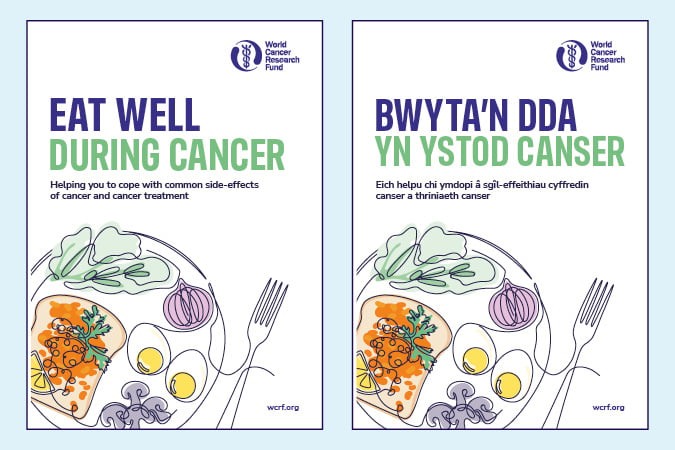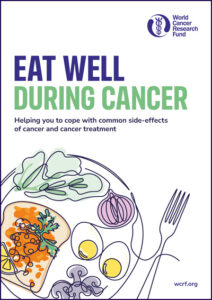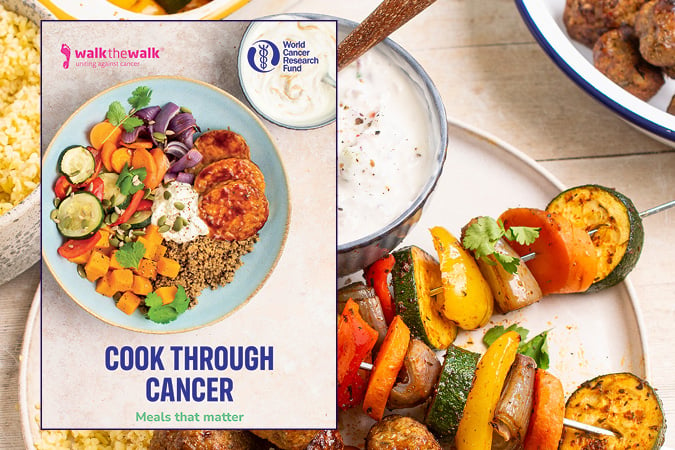Eat well during cancer
A practical guide for people living with cancer, offering tips on eating well to manage common side effects of cancer and treatment

Eat well during cancer is a practical, evidence-based guide to help you feel more confident about what to eat to help you manage common side effects like fatigue, weight loss and digestive issues. It offers supportive advice and recipe ideas to help you maintain a nourishing diet that supports your strength, recovery and overall wellbeing.
What’s inside?

- Answers to common questions about diet during cancer and treatment
- Supportive advice and recipes for managing common side effects
- Information about our Cancer and Nutrition Helpline for expert support
- Inspiring stories from others living with cancer.
Why this guide?
This guide is based on the latest scientific evidence and expert insights from the British Dietetic Association (BDA) Oncology Specialist Group.
This is a valuable resource that is evidence based and peer reviewed, and will benefit many patients undergoing cancer treatment. It will provide clear guidance for their friends and families. It has been a privilege to have been involved in its development and will be utilised by many oncology dietitians.
Who is it for?
This guide is suitable for most adults with cancer. However, it may not be suitable for you if:
- You are eating very little
- You have experienced significant unintentional weight loss
- You are receiving palliative care
- If you follow a special diet or have had a colostomy/ileostomy, speak to your care team for personalised advice.
Always follow the advice of your cancer care team. This guide is designed to complement their guidance and provide additional support.

Cook through cancer recipe book
Get this FREE cookbook with 12 nutritious recipes devised by Registered Nutritionist Gopi Chandrathevan for individuals, carers, families and health professionals looking for practical, supportive meal ideas

Support our work
We can only offer our guides and recipe booklets for free thanks to the generosity of people like you
